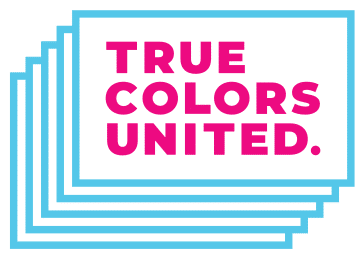
While This Isn’t the Home-run for LGBTQ+ Rights That We Hoped for, It Also Isn’t a Defeat.
Today, the Supreme Court issued their opinion in the case of Fulton v. City of Philadelphia, a case which asked whether Catholic Social Services (CSS), a religiously affiliated child welfare agency in Philadelphia, can be held to nondiscrimination provisions in public contracts. In March 2018, CSS lost a city contract when they refused to work with same-sex married couples as potential foster and adoptive parents. Today, the Supreme Court ruled in favor of CSS.
Here’s a quick recap of the case.
CSS argued that they have the right to refuse to place youth with LGBTQ+ foster parents – and that the City of Philadelphia’s nondiscrimination law infringed on their First Amendment rights. CSS argued the Court should broadly reinterpret First Amendment protections to include a license to discriminate against LGBTQ+ people on the basis of religious belief.
However, the Court declined to issue such a ruling. Instead, the Court ruled that because Philadelphia offered exemptions to some agencies related to other contract terms (unrelated to nondiscrimination), that CSS was similarly entitled to seek an exemption from a provision in the contract that they were unwilling to meet.
In other words, the Supreme Court determined that enforcing nondiscrimination laws is not in conflict with the First Amendment, but determined that Philadelphia was not neutral in applying its nondiscrimination provisions. While this ruling isn’t the home-run for LGBTQ+ protections that we might have hoped for, it also isn’t a defeat.
Here’s what it means for LGBTQ+ youth experiencing homelessness.
Nondiscrimination protections for LGBTQ+ people are still intact, an outcome worthy of celebration. The narrow ruling likely has no implications for LGBTQ+ nondiscrimination in foster care and adoption beyond the scope of this specific contract in the city of Philadelphia. However, foster care and adoption discrimination is still a critical problem across the US, and it’s far past time to pass federal legislation to end practices in child welfare that harm LGBTQ+ children, youth, and families.
The primary pathway to LGBTQ+ youth homelessness is through foster care, and LGBTQ+ youth are 120% more likely to experience homelessness than their peers. Reducing that risk requires meaningful reforms to our foster care system to ensure that every single young person who enters care is leaving with strong connections to supportive adults, whether that’s through reunification with their family of origin or adoption.
Every qualified LGBTQ+ family who is turned away from a child welfare agency is one fewer family who could provide that support to an LGBTQ+ young person (or any young person). Every qualified LGBTQ+ family who is discouraged from trying to become foster parents out of fear of discrimination is one more LGBTQ+ young person aging out of foster care without a meaningful relationship with a supportive adult. Simply put, our goal of ending youth homelessness in the United States will not be achievable without key reforms to our foster care system. Many of these reforms would be advanced by the John Lewis Every Child Deserves a Family Act.
The young people with lived experience of homelessness we work with at True Colors United frequently identify ending discrimination in foster care as one of their top priorities. It’s time for us to listen to them and to take real action to prevent youth homelessness by ensuring that LGBTQ+ youth in foster care are treated with dignity and respect.
